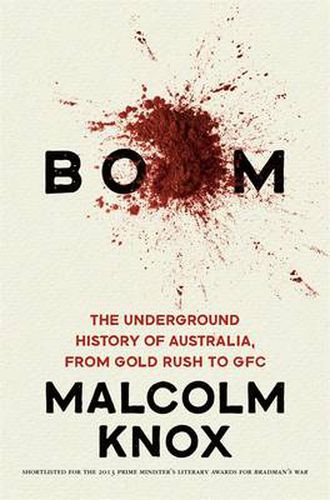Boom by Malcolm Knox
Just as I finished reading Malcolm Knox’s comprehensive history of mining in Australia, the High Court dismissed a challenge by Fortescue Metals Group to the validity of the mining tax. Despite the facts that Fortescue has not paid any of the tax thus far and Australian mineral rights belong to the Commonwealth, the iron ore company launched the case because they believed the tax to be ‘unfair, discriminatory and complex’.
Knox writes in Boom that ‘the argument over mining taxes is a lightning rod for deeper conceptions of Australian values’, and his book traces the history and development of these values from the individual prospectors of the nineteenth-century to the multinational corporations of today, detailing the fraught relationship mining has had with Aboriginal people, immigration and the environment. Knox suggests that mining industry workers, throughout history, have seen themselves as individual capitalists. This explains why, when compared to other industries, miners’ unions are more sympathetic to their employers, and why so many workers sided with their bosses to oppose the mining tax.
Knox goes into a lot of eye-opening detail regarding the technicalities of mining; a description of a train at an iron ore mine includes precise numerical information about its length, horsepower, fuel requirements, carrying capacity and length of journey. It is clear he has inherited his love of big machinery from his father, an engineer who once took the family to a copper mine as a holiday activity. Knox writes that ‘the majesty of the physical operation has an opiate effect’ but warns that complicated historical values are being used ‘as a weapon against dissent’.
Critically acclaimed for his fiction, Knox demonstrates a skilful ability in Boom to weave together detail, history and narrative, upholding his reputation as a masterful storyteller.


